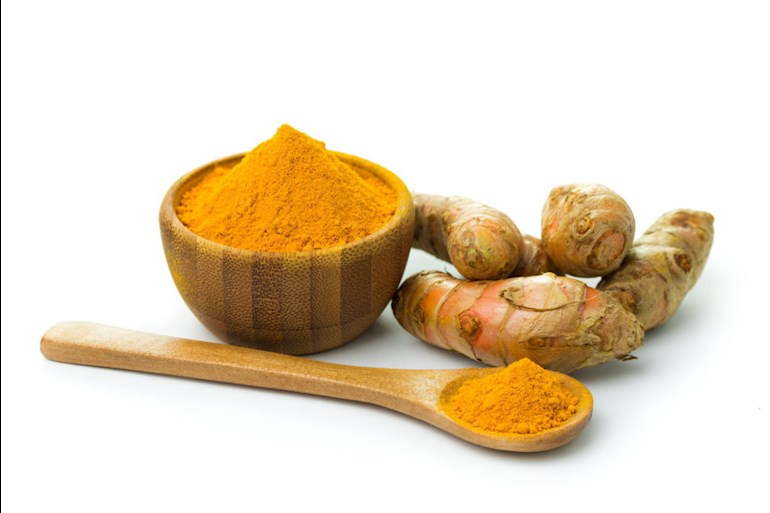First, let me add my disclaimer. I believe that people need to discuss any complementary therapy or supplement in which they are interested with a neurologist. I realize that many doctors look down on supplements, but I also realize that the vast majority of posters and readers on this forum have little scientific background with which to make an informed decision so again I urge everyone to take this information with them next time they visit their doctor if they have any real interest.
-
-
So on to today's post . . .
-
-
Today I want to revisit a topic that has long been discussed amongst PwPD and one on which I have posted before namely curcumin. The reason I want to revisit this topic is because a new study was just published once again showing the potential of curcumin to help with Parkinson's. The study's title is:
-
Curcumin Effectively Rescued Parkinson's Disease-Like Phenotypes in a Novel Drosophila melanogaster Model with dUCH Knockdown.
-
ncbi.nlm.nih.gov/pmc/articl...
-
and the conclusion of these researchers was:
The neuroprotective properties of curcumin have been demonstrated in studies using many PD models induced by several different environmental and genetic factors. In addition to models developed by manipulations of the α-synuclein, PINK1, DJ-1, and LRRK2 genes, curcumin also exerted positive effects on dUCH knockdown flies. Significant improvements were observed in PD-like phenotypes in dUCH knockdown flies, which were characterized by progressive locomotor defects accompanied by the degeneration of DA neurons. Since curcumin exerts neuroprotective effects on PD models induced by several different environmental factors (such as 6-OHDA, MPTP, rotenone, and paraquat) and genetic factors (including α-synuclein, PINK1, DJ-1, LRRK2, and UCH-L1), our results provide additional evidence to demonstrate that treatments with curcumin have a potential as an appropriate therapy for PD related to oxidative stress.
-
-
-
Next I want to begin with a rehash of a topic I have brought up many times before on this forum so if you are a regular reader of my posts you can skip this section.
-
Researchers have long complained that Parkinson's disease had too many variables and finding a commonality between cases was almost impossible, but in recent years advances in research have allowed a few Grand Theories of Parkinson's to evolve. I believe strongly in one of those theories and that is what drives my posts on this site. I believe that the one common factor to a large majority of Parkinson's cases is the presence of mutant alpha-synuclein that mis-folds and causes cell death. If you read other posts I have made by clicking on my name or avatar you can find links to other research, but here are several links discussing this topic:
-
trendintech.com/2017/01/25/...
sciencedirect.com/science/a...
scientificamerican.com/arti...
parkinsonsnewstoday.com/201...
-
What all of those links have in common is that researchers found mis-folded alpha-synuclein to be toxic to cells. Some of the researchers focused on a specific species of alpha-synuclein and so didn't make the jump to ALL cases of Parkinson's including those caused by genetically inherited problems, but increasingly researchers are beginning to make the link and focus on this single protein as the common link.
-
What is important about all this is that Curcumin in the form of Theracurmin has real life human clinical evidence that it reduces protein mis-folding and the resulting aggregation.
-
Memory and Brain Amyloid and Tau Effects of a Bioavailable Form of Curcumin in Non-Demented Adults: A Double-Blind, Placebo-Controlled 18-Month Trial
-
sciencedirect.com/science/a...
The study was in people with Alzheimer's, and yes it was done by the makers of the molecule, but that shouldn't stop people from giving this new micro-nutrient a serious look. The simple fact is that the amount of research showing curcumin has potential benefit is enormous when compared to the research on nearly any other vitamin or supplement touted on this forum and that includes the ever popular thiamine.
-
Also, as I have said again and again and again, the complementary therapies people discuss on this forum all have varying degrees of research supporting them, but none are likely to be a silver bullet by themselves so I believe discussing the right cocktail of vitamins is a discussion worth having with one's doctor, and even more importantly people must remember that nothing is likely to reverse your symptoms. It is much more likely that such cocktails of natural remedies will simply slow your progression, and that means not giving up on something just because you don't "feel" better. If there is strong science behind your choices then I personally would stick with it until other science either proves it's useless or worse harmful.
-
Finally, for those that are interested here are several other links to valuable information supporting curcumin as a treatment for Parkinson's. If you happen to have a doctor that needs convincing to discuss this topic perhaps printing out a few of these articles or papers and taking them with you might prove helpful.
ncbi.nlm.nih.gov/pubmed/298...
michaeljfox.org/foundation/...
tandfonline.com/doi/abs/10....
ncbi.nlm.nih.gov/pubmed/290...
ncbi.nlm.nih.gov/pubmed/284...
ncbi.nlm.nih.gov/pubmed/288...
ncbi.nlm.nih.gov/pubmed/273...
ncbi.nlm.nih.gov/pubmed/267...
ncbi.nlm.nih.gov/pubmed/240...
ncbi.nlm.nih.gov/pubmed/282...
-
-
-
-
Best Wishes to All - Joe in NY
-
P.S For those that want the Cliff Notes version, the human clinical trial participants took 1 pill of Theracurmin in the morning and one in the evening and that was enough to reduce mutant protein aggregation.

 Joe
Joe